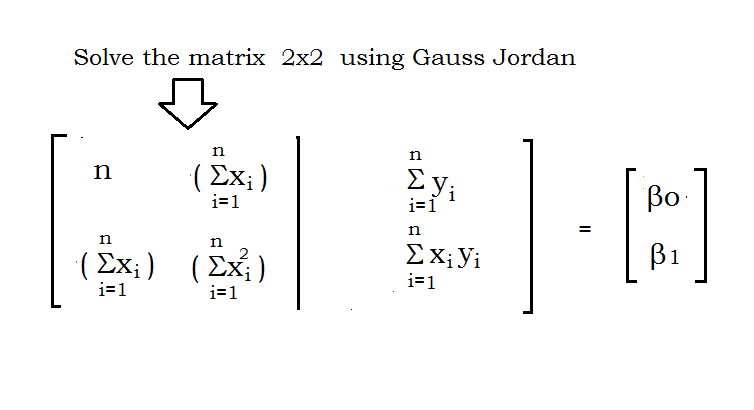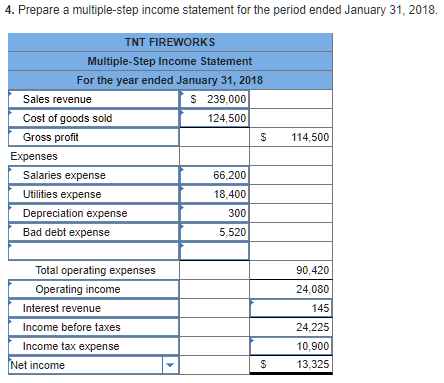
However, FASB makes sure to continually educate and update the knowledge and expertise of its accountants and other professionals to uphold its mission and purpose while also enabling transparency. Many experts believe fraudulent financial reporting among publicly traded companies aided in the crash. By establishing the Securities And Exchange Commission (SEC), the government could take over financial responsibilities once given to individual states. The primary focus of the SEC is investor protection and maintaining the integrity of the securities markets. It oversees financial disclosures made by public companies to ensure they provide accurate and timely information to investors. The SEC is a federal regulatory agency responsible for overseeing and regulating the securities industry, including securities exchanges, brokerage firms, and investment advisors.
This allows investors to make informed decisions about where to invest their money. The agreement has undergone several changes due to difficulties and disagreements surfacing between the IASB and FASB Boards. The FASB and IASB continue to work together to improve comparability and consistency in global financial reporting. Other users of the GAAP accounting standards include, but are not restricted to, creditors, competitors, employees, and regulatory bodies that are evaluating companies. Clearwater Analytics allows its users to receive automatically generated FASB 115, 133, and 157 reports at the click of a mouse. Clearwater accounts for 15+ audited local GAAP rules (with the ability to add Nth basis accounting) and 100+ asset classes.
Investors can rely on the FASB to issue authoritative guidance on financial reporting. The FASB uses this to regulate financial accounting and reporting practices. The FASB works closely with the Securities and Exchange Commission (SEC) and the International Accounting Standards Board (IASB). Their goal is to make sure everyone involved has a good understanding of all standards.
- The main focus of the FASB is to set accounting standards and improve GAAP, ensuring that financial reporting is transparent, reliable, and relevant.
- Most nonprofits are required to follow Generally Accepted Accounting Principles (GAAP).
- As we mentioned earlier in this article, IASB and FASB both work toward the goal of developing and enforcing financial reporting standards for publicly held companies.
The International Financial Reporting Standards (IFRS) compiles international standards. Having an IASB member present full-time is one of the most visible features of FASB’s daily operations. The purpose of the role is to facilitate information exchange and increase cooperation between the FASB and IASB. Established in 1973, the Financial Accounting Standards Board (FASB) was originally created to step in the shoes of the Accounting Principles Board, which served the same purpose as FASB from 1959 to 1973.
Recent Developments and Controversies Surrounding the FASB
FASB is the organization responsible for developing and improving accounting standards in the U.S. It focuses on transparency and accuracy, to ensure financial statements adhere to consistent guidelines. This benefits both businesses and investors as it provides useful information to help them make informed decisions.

Following FASB’s GAAP standards is mandatory for publicly traded companies in the U.S. The FASB consists of seven full-time members that are entrusted with responsibilities pertaining to accounting and financial reporting. These members are required to sever all ties with the companies or organizations they served before joining the Board. It is the usual norm for the FASB to draw its member from diverse occupational backgrounds. However, the members are expected to act as a team in order to safeguard the interests of investors, other users and the public in general. Besides, the members are also expected to leverage their knowledge and experience in the fields of accounting, finance, business, accounting education, and research.
Financial Accounting Foundation Board of Trustees [07/28/23]
The Financial Accounting Standards Board (FASB) is responsible for establishing and updating the Generally Accepted Accounting Principles (GAAP) in the United States. GAAP refers to a set of accounting principles, standards, and guidelines that govern how financial information should be recorded, presented, and disclosed by public companies and non-profit organizations in the U.S. The main focus of the FASB is to set accounting standards and improve GAAP, ensuring that financial reporting is transparent, reliable, and relevant. It focuses on providing consistent guidelines for financial reporting by all companies, not just those issuing securities in public markets. FASB’s importance lies in its impact on the financial reporting process and the overall credibility of financial information.
Pilot is not a public accounting firm and does not provide services that would require a license to practice public accountancy. In response to the devastating stock market crash in 1929, the U.S. government created the Securities and Exchange Commission (SEC) in 1933. When the market took a nosedive, it created a domino effect leading to a decade-long struggle for the country. Under FASB regulations, companies must disclose their asset allocation method, but each company can choose its preferred method. The Financial Accounting Standards Board is structured as a nonprofit private entity; it is not an extension of any government.

The Private Company Council improves the process of setting accounting standards for private companies. The PCC is the primary advisory body to the FASB on private company matters. While the FASB mainly focuses on setting standards and rules for accounting professionals in the U.S., the International Accounting Standards Board (IASB) deals with setting standards and rules for international accounting. Due to the global nature of businesses today, the FASB and IASB often cross paths due to overlap in businesses, helping foster cooperation on the issue of improving global accounting standards. FASB requires companies in the same industry to report revenue in the same manner.
Classification and measurement (IASB and FASB)
When companies follow the accounting standards set by FASB, it promotes consistency in financial reporting, making it easier for investors to analyze and compare different entities. This fosters investor confidence, which is crucial for the functioning of capital markets. The GASB, which is similar in function to the FASB, was established in 1984 to set accounting and financial reporting standards for state and local governments across the United States. Together, they improve financial reporting in the U.S. while empowering and instructing stakeholders on how to read and comprehend accounting standards. Research, conversation, debate, and considerable feedback from the public are all part of the rigorous process by which the FASB develops financial accounting rules. Additionally, it examines and analyzes current financial accounting standards and publishes technical memos, interpretations, and statements that offer additional advice on GAAP.

The Financial Accounting Standards Board has the authority to establish and interpret generally accepted accounting principles (GAAP) in the United States for public and private companies and nonprofit organizations. GAAP is a set of standards that companies, nonprofits, and governments should follow when preparing and presenting their financial statements, including any related party transactions. The FASB was formed in 1973 to succeed the Accounting Principles Board and carry on its mission. GAAP refers to a set of accounting principles, standards, and procedures used for preparing and presenting financial statements.
Overview of the Financial Accounting Standards Board (FASB)
As a founder, there are a myriad of positions you’ll be filling until you begin to staff your startup. Properly following accounting standards ensures that your startup won’t have any problems in the future. The Financial Accounting Standards Board issues new accounting standards on an as-needed basis, depending on the needs of the business and industry. They also both have the power to create new standards, interpret existing ones, develop compliance for these standards, and ensure that reporting entities (companies) implement these standards properly. In 2023, the FASB marks five decades of developing and improving accounting standards that provide useful information to investors and other allocators of capital. This uniformity helps with global correlations and upgrades the nature of worldwide financial reporting.
It also sets reporting standards for public and private companies in the U.S and globally. Securities and Exchange Commission (SEC), which mandates that public companies adhere to accounting standards established by the FASB. On its own, the FASB endeavors to set the highest-quality standards by way of undertakings that are both robust as well as inclusive. The FASB also shares a collective responsibility with the GASB and the FAF of establishing and enhancing financial accounting and reporting standards in order to provide helpful data to investors and other users of financial reports.
IASB, FASB, and The Accounting Review call for academic research papers on the performance of standards in capital markets
The organizations also educate stakeholders on how to understand and implement the standards most effectively. The purpose of the FASB is to establish and improve financial accounting and reporting standards in order to provide users of financial statements with information that is relevant, reliable, and comparable. The FASB also establishes financial accounting standards for non-profit organizations, which are not required to follow the same standards as publicly traded companies.
- In 1973, these 3 organizations merged into one 128-member board through an act known as the Financial Foundation Act.
- The primary role of FASB is to develop and improve generally accepted accounting principles (GAAP) in the United States.
- The Financial Accounting Standards Board (FASB) is responsible for setting the U.S.
- Additionally, the FASB belongs to the International Accounting Standards Board (IASB).
The SEC has not yet made any decisions regarding the FASB’s future, so it is possible that it will continue to exist in the near future. The International Accounting Standards Board (IASB) has a say on what are considered acceptable methods. It helps to control the accounting world, as well as make constant improvements to accounting. These are projects that standard setters have agreed to conduct simultaneously in a coordinated manner, including sharing of staff resources and making every effort to keep joint projects on a similar time schedule at each Board.
This can make it difficult to properly complete the reporting requirements and for investors to understand. Investors feel that the standards could more easily interpret information, especially the information needed to analyze a company. The FASB’s priority is to improve financial reporting for the benefit of investors and other users of financial information, mainly in What is fasb US capital markets. The accounting standards issued by the FASB are recognized by the Securities and Exchange Commission (SEC) as being authoritative, and so must be followed by publicly-held companies filing reports with the SEC. These standards have been aggregated into the Accounting Standards Codification, which is designed to make the standards more searchable.
Its primary objective is to protect investors, maintain fair and efficient markets, and facilitate capital formation. The SEC enforces securities laws, ensures compliance, and provides oversight to ensure that public companies and other market participants operate fairly and transparently. The SEC has a broad regulatory mandate and is responsible for enforcing a wide range of securities laws. The main difference between the two is that FASB bases its decisions on US financial accounting rules, whereas the International Accounting Standards Board makes its decisions based on international financial accounting principles.
These principles are established by various accounting standard-setting organizations, with FASB being the primary one in the U.S. GAAP provides a framework that governs how financial information should be recorded, reported, and disclosed. It ensures consistency, comparability, and transparency in financial reporting across different companies and industries. FASB sets and makes updates to GAAP accounting, a common set of accounting principles, standards, and procedures that companies must follow when they report on their financial standing. Collectively, the organizations’ mission is to improve financial accounting and reporting standards so that the information is useful to investors and other users of financial reports.
It was made because of the need for consistent and transparent financial information in the USA. The American Institute of Certified Public Accountants (AICPA) is one of the FASB’s many connections to other accounting groups. The American Institute of Certified Public Accountants (AICPA) is in charge of establishing the industry’s expert standards.


